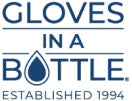Can Eczema Flares Be Prevented by Knowing Your Skin Type?
Share
Do you know your skin type? Sometimes is can be difficult to figure out, especially if the condition isn’t extreme. However, even slightly dry skin, or slightly oily skin, can be adversely affected by using the wrong skin care products for your skin type – dry skin becomes drier and oily skin becomes oilier. Using the wrong products can be particularly damaging for those with eczema. To be safe, it’s always a good idea to use a shielding lotion under any other skin care product, but knowing your skin type and choosing appropriate products for your condition will also help avoid eczema flares.
There are five basic skin types: oily, dry, combination, sensitive, and aging.
If you’re having trouble identifying your skin type, here’s an easy test. After washing your face with gentle, natural soap and ensuring it’s completely dry – wait about 30 minutes – pat your cheeks, chin, nose, and forehead with rice paper. If your skin is oily, the paper becomes translucent. If it’s dry, the paper will stay the same.
Some cosmetics and other skin care products are now labeled as appropriate for certain skin types and, if you can find products so labeled, using them may reduce your chances of flares. However, although no one has really figured out what causes eczema, it is widely recognized to be associated with irritation from chemicals – and most skin care products contain irritating chemicals even if they are labeled for a particular skin type. That’s where a good shielding lotion comes in.
A good shielding lotion bonds with the outer layer of the skin to form a protective layer that keeps out chemicals – which is exactly what eczema sufferers need. In fact, thousands of doctors now recommend a shielding lotion as eczema treatment for precisely that reason.
No matter what your skin type, and no matter what skin care products you use, preventing contact with and absorption of harsh or irritating chemicals is still the your best eczema treatment. Using the right skin care products for your skin type will help but, to be safe, a good shielding lotion should always be used as a base. Give it a try!
